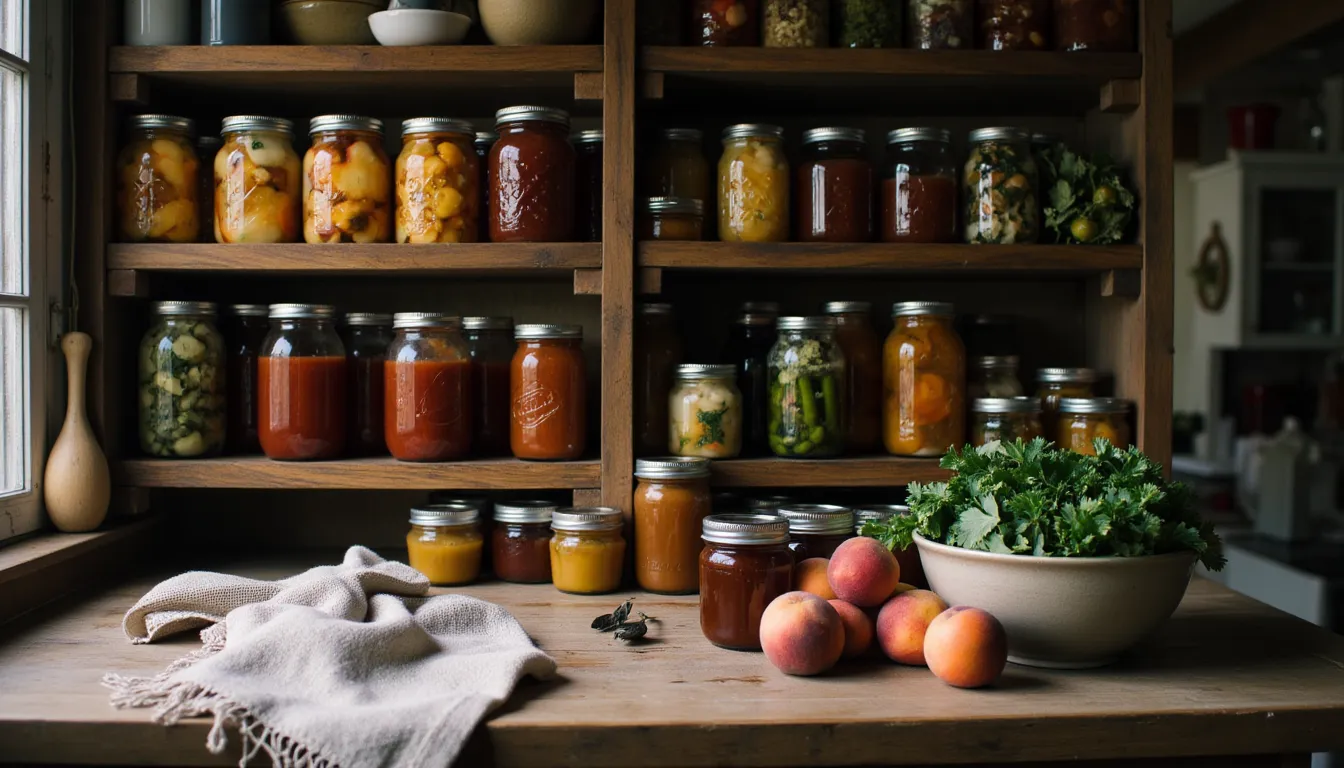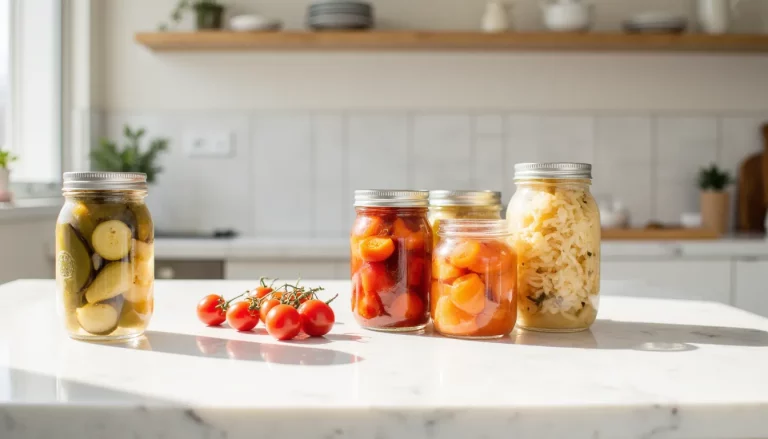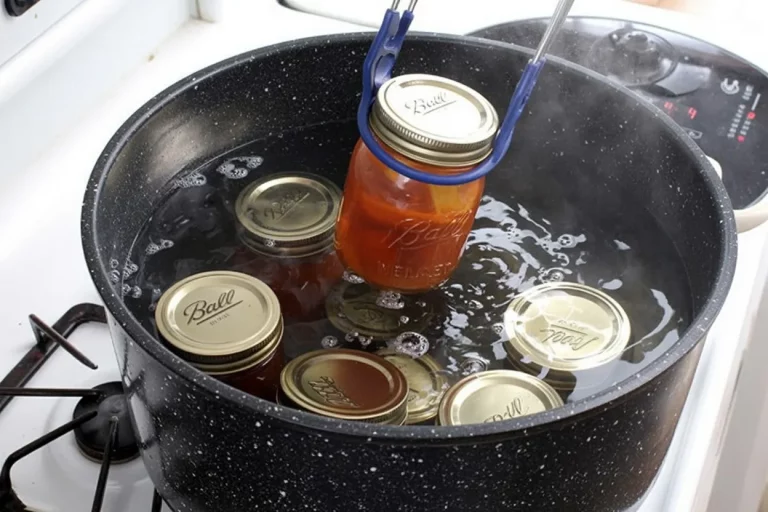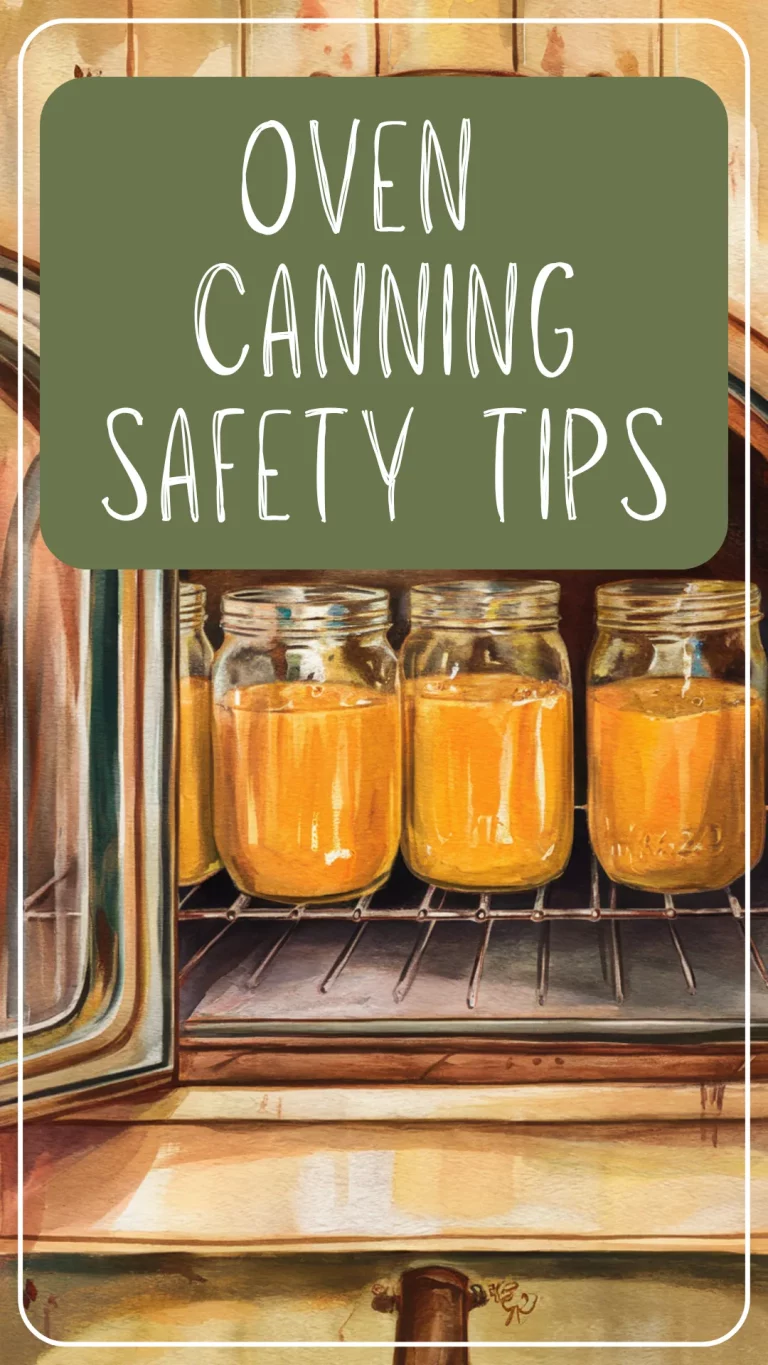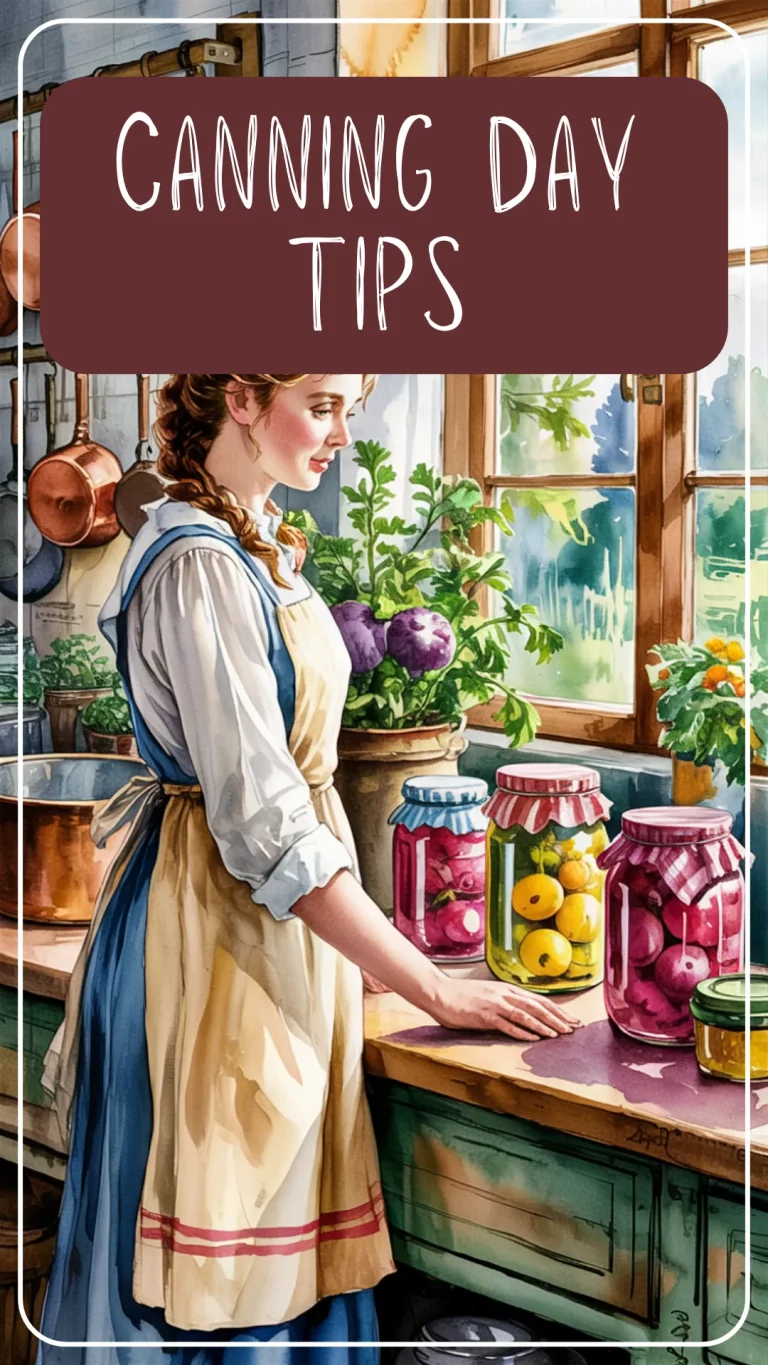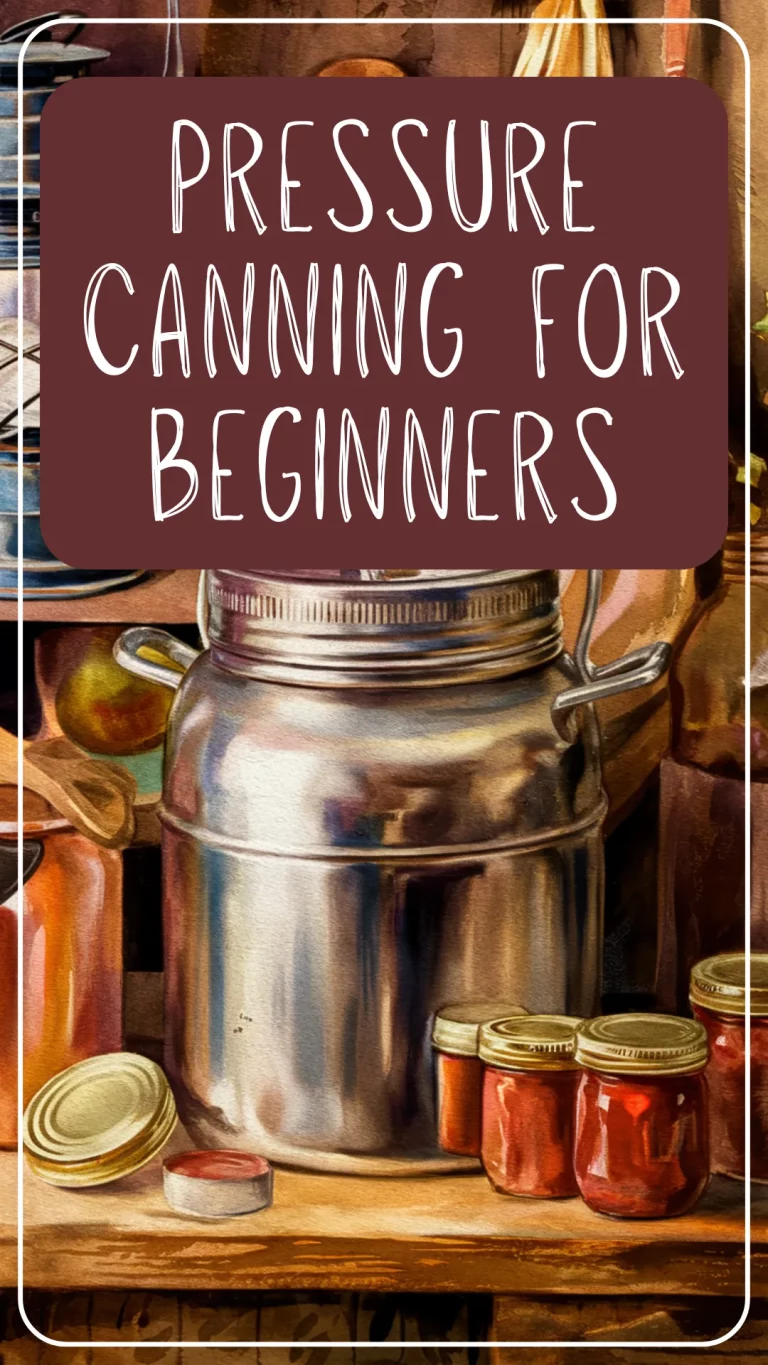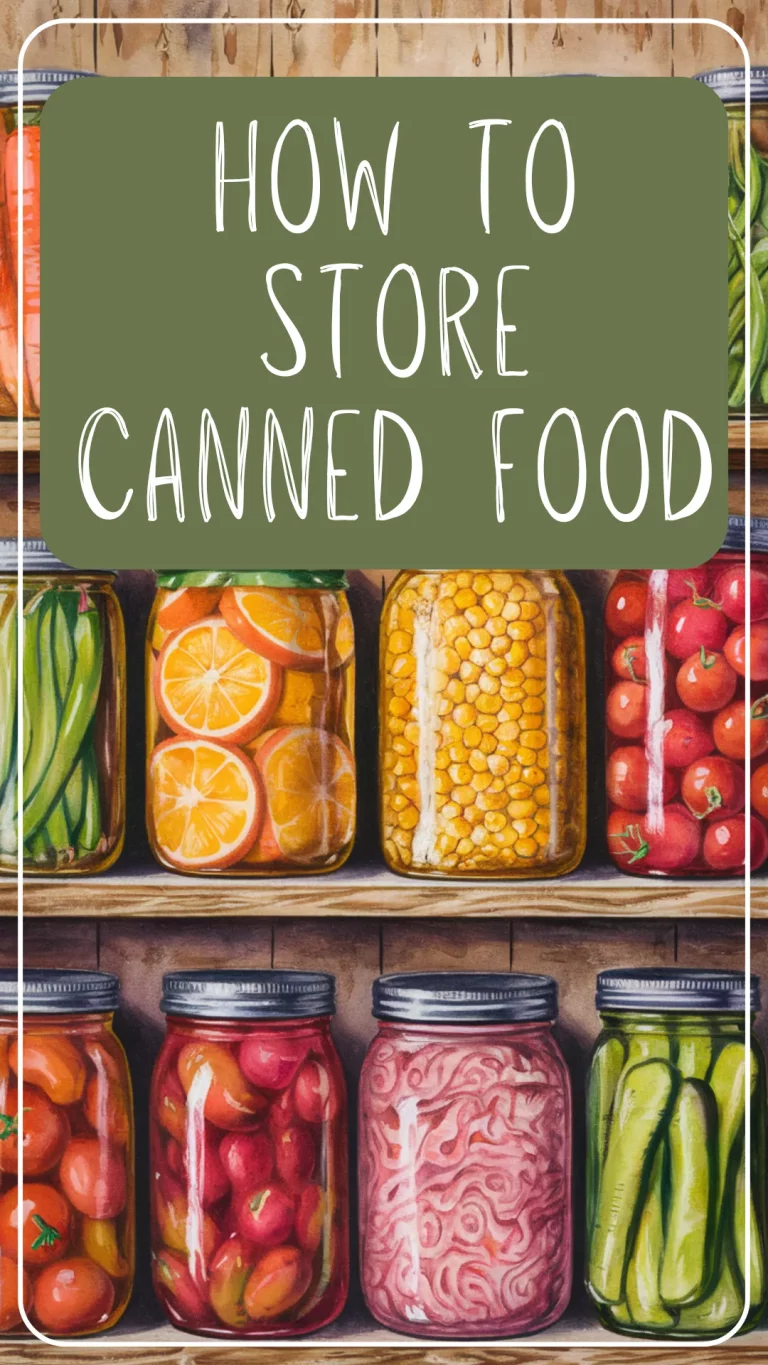Is Home Canning Really Cheaper Than Buying Store-Bought?
Ever wondered if canning actually saves money or if it’s just one of those cozy kitchen hobbies? This breakdown shows what it really costs to fill your shelves with home-canned food—and where the savings add up fast. Spoiler: the numbers might surprise you.
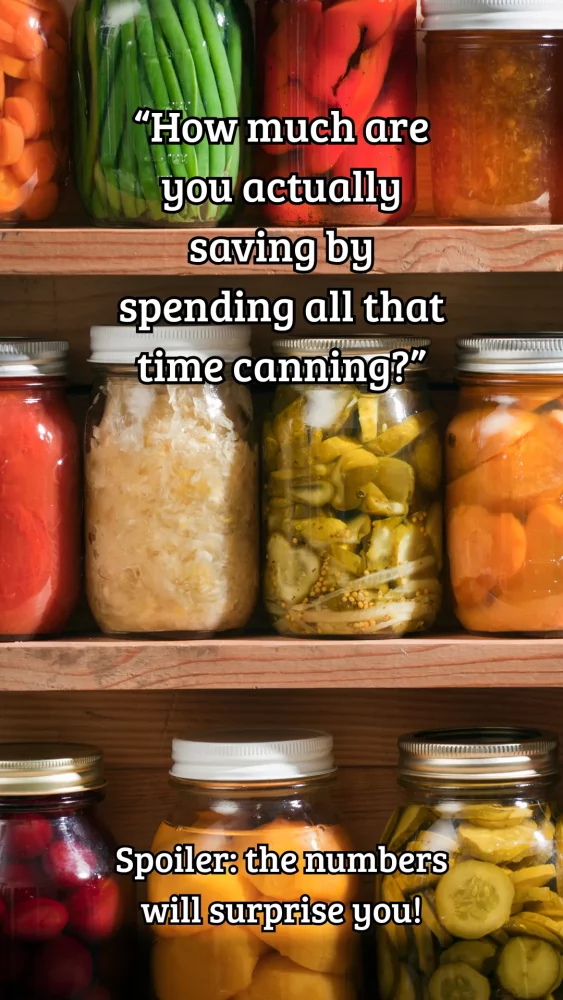
Inside this post:
Can You Really Save Money by Canning Your Own Food?
If you’ve ever stood in front of shelves filled with sparkling jars and wondered whether they actually save money—you’re not alone.
When you’re new to canning, it can be tricky to tell if all those jars, lids, and hours in the kitchen really pay off.
Chelsea from Little Mountain Ranch decided to find out. In her video (scroll to watch), she shares exactly how much she saves by canning her family’s food each year.
Her numbers are in Canadian dollars, so I’ve converted them here into approximate U.S. dollars to make the savings easier to understand.
The Upfront Costs: Your Starting Investment
Canning does take a bit of setup, but most of it is a one-time purchase that will last for years—sometimes decades.
| Item | Canadian Price | Approx. USD | Notes |
|---|---|---|---|
| Quart jars (12 pack) | $20–25 | $15–18 | Reusable for decades |
| Pint jars (12 pack) | $15 | $11 | |
| Metal lids | $0.30–0.50 each | $0.22–0.35 | Replace after each use |
| Water-bath canner | $50–100 | $37–75 | Or use a large stockpot you already own |
| Pressure canner | $200–1000+ | $150–750+ | Needed for low-acid foods like meat and beans |
Once you have your setup, your ongoing cost per jar is simply the food itself and a new lid.
What You Actually Save by Canning
Chelsea shared real examples of common foods she cans each year. The next table is a snapshot of her approximate savings after converting to USD. Those savings are pretty impressive right?
| Food | Homemade Cost | Store-Bought Cost | Savings per Quart (USD) | Notes |
|---|---|---|---|---|
| Jam | $3–4 | $3.70–7.40 | $1–4 | Up to $7 saved if homegrown fruit |
| Tomato sauce | $1–4 | $11–15 | $10+ | Huge difference if tomatoes are homegrown |
| Bread & butter pickles | $1.15 | $5.90–11 | $5–10 | Vinegar bought in bulk keeps cost low |
| Peaches | $4.40–5 | $3.70–7.40 | ±$1 | Flavor and quality are the real win |
| Beans (quart ≈ 2 cans) | $1.50 | $7.40–11.80 | $6–10 | One of the biggest money-savers |
| French onion soup | $1.10 | $7–10 | $6–9 | Homegrown onions + homemade broth |
| Chicken or turkey | $2.60 | $17–19 | $15+ | Pasture-raised, shelf-stable, and ethical |
(Conversions use 1 CAD ≈ 0.74 USD.)
Even when she buys ingredients, Chelsea’s savings often reach 50–80%.
When she grows her own produce, the only ongoing cost is the lid.
Why It’s Worth It (Even Beyond the Savings)
For many canners, the math isn’t the only reason to keep the shelves full. Chelsea grew up watching her mom and grandmother can peaches and pickles every summer—and that family rhythm still shapes how she feeds her own household.
Home-canned food also means:
- You know exactly what’s in every jar.
- You can enjoy organic food without paying premium store prices.
- You’ve got real food security—ingredients ready for soups, sauces, and meals all year long.
- And honestly, a wall of colorful jars just feels good. There’s beauty in the work of your own hands.
Thinking About Starting?
If you’re curious but unsure where to begin, start small.
Jams, applesauce, and pickles are easy first projects and can be safely preserved with a simple water bath canner—or even a large stockpot.
Skip the shortcuts you might see online (like “oven canning”) and stick with modern, tested methods. Safe canning is simple once you know the basics.
You can find beginner-friendly guides and safety tips in my Canning for Beginner’s series.
Watch Chelsea’s Full Breakdown
Chelsea’s full video, How Much Money I Save Canning My Own Food, dives into her real numbers, her pantry setup, and the joy that keeps her canning year after year. You can watch it right here but be sure to hop on over and leave a thumbs up and subscribe to her channel for more canning tips.
